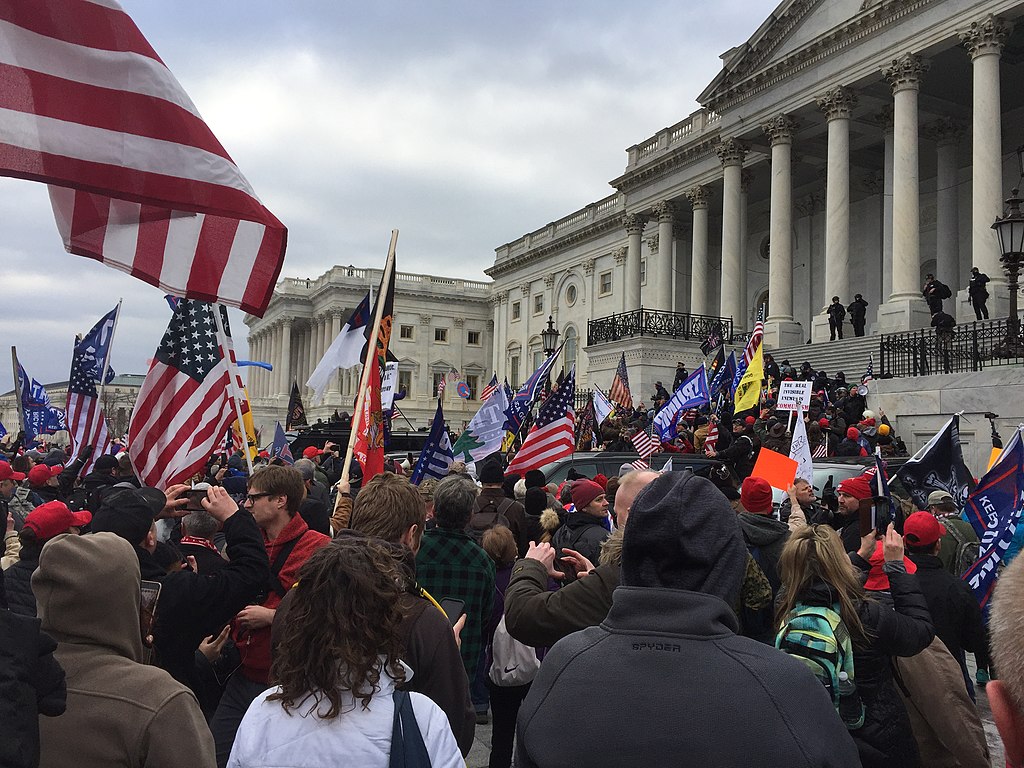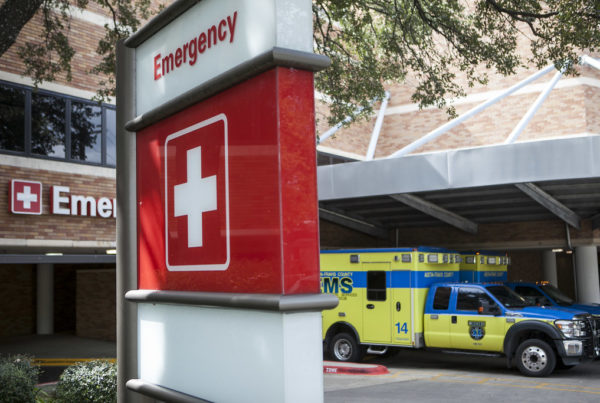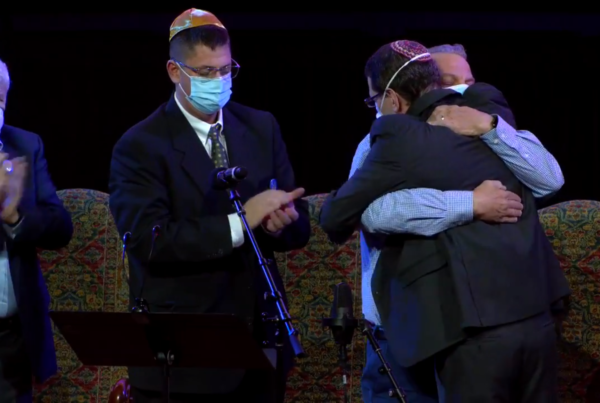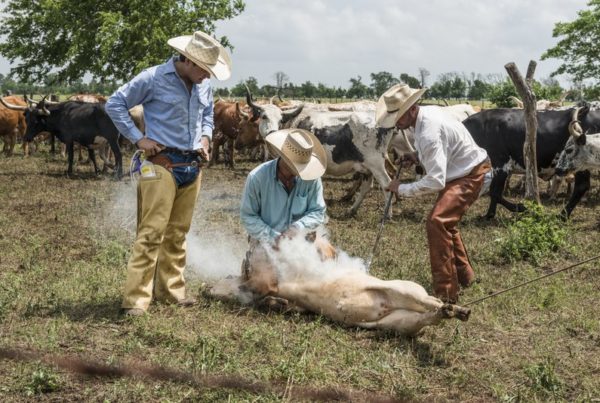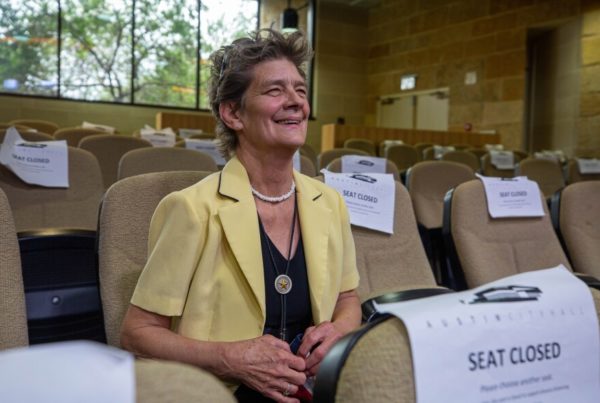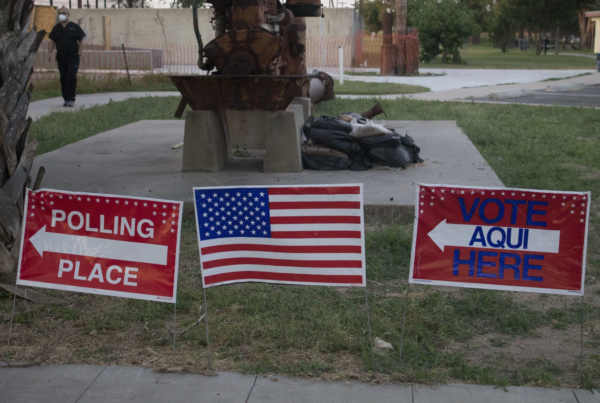Members of the North Texas-based far-right militia group, the Oath Keepers, face federal seditious conspiracy charges for the role they played in the Jan. 6, 2021 insurrection at the U.S. Capitol. They’re some of the most serious charges to come out of the investigation into the riot.
Alan Rozenshtein is an associate professor at the University of Minnesota Law School specializing in national security law. He told Texas Standard that the case against the group is “textbook.” The Department of Justice is charging Oath Keepers founder Stewart Rhodes, of Granbury, Texas, and 10 other people, with seditious conspiracy.
Seditious conspiracy, as opposed to treason, has two components: the planning with other people to commit a crime; and a use of force to attack the government, or to prevent the execution of a law – in this case, the certification of the results of the 2020 presidential election.
Listen to the interview with Rozenshtein in the audio player above or read the transcript below to learn more about how charges of seditious conspiracy are actually quite rare.
“It’s always, in some sense, surprising when they’re brought,” Rozenshtein said.
This interview has been edited lightly for clarity.
Texas Standard: When we talk about seditious conspiracy treason, what exactly does that mean? Sedition?
Alan Rozenshtein: It’s important to to separate these crimes. Treason is obviously the most serious crime. It’s the only crime defined in the Constitution, and it has a specific meaning about giving aid to enemies during wartime. Seditious conspiracy is a different crime, although it is quite serious as well, and it has two components. One is conspiracy. So, basically the planning with other people to commit a crime. And then the substantive part, which is sedition, which is a use of force to attack the government, or in this case, to prevent the execution of any law, and specifically the conduct here that’s being alleged to be seditious. Conspiracy is the action by several of the Oath Keepers to plan and then attack the Capitol so as to prevent the certification of the Electoral College vote on Jan. 6.
Could you put this in the context of others who have been charged and convicted of seditious conspiracy? Historically speaking, how would this fit?
Historically, this statute has a long history. It stems all the way back to the Civil War, but it hasn’t been used much in the last several decades. I think the most on-point historical example is one from the 1950s, when a group of Puerto Rican nationalist terrorists stormed the Capitol, actually shot at representatives on the congressional floor, wounded several of them, and they were doing so in their minds to further the cause of Puerto Rican independence. They were charged and convicted of seditious conspiracy, though their sentences were later commuted. I think that that is the best historical analogy here, given that we’re also seeing an attack on the Capitol for an overtly political purpose.
As someone who studies this area of the law, were you surprised that seditious conspiracy charges were brought against the founder of the Oath Keepers?
Yes and no. On the one hand, because seditious conspiracy charges are quite rare, it’s always in some sense surprising when they’re brought. On the other hand, this is, in my view, assuming the allegations can be proven in a court of law, this is the textbook case of seditious conspiracy. If this is not seditious conspiracy, I don’t know what is.
If the actions of the Oath Keepers were seditious or constituted seditious conspiracy, why not others? Why has this charge not been used more in prosecuting those who participated in the Jan. 6 insurrection?
There are a few reasons for this. The first is just the sheer size of the investigation. There are more than 700 individuals who are involved in this investigation. This is the biggest investigation in American history, and a lot of those individuals, while they committed serious offenses, were not organizers, were not planners. These are people who committed trespass. Maybe they even committed some property crime, maybe even some violent crime. But they probably weren’t planning in advance of Jan. 6 that this is what they were going to do. And so it just took some time for the Department of Justice to process those individuals while they were building a case against the the Oath Keepers.
What is the burden of proof the prosecutors have to carry in a charge of seditious conspiracy? Is it significantly higher than some of the other charges that have been brought against participants in Jan. 6?
It is, for both legal and, let’s call them prudential, reasons. So on the legal side, it’s not enough just for the government to show that people planned to carry out some action that interrupted a government function. They have to establish – and this is based on the last time the Department of Justice brought a seditious conspiracy case in Michigan about 10 years ago – they have to establish that the individuals acted specifically against the government so as to interfere with the government’s act of lawful purpose. And so here, the government has to establish that the reason that these people went in and used force was specifically to prevent the certification of the Electoral College.
And the other reason I think that the government is being careful is because seditious conspiracy law, at least as it’s written, is very broad. It applies to any attempt to use force to interfere with the execution of any law. And so I think what the Department of Justice is trying to do here is it’s trying to be very judicious in what cases it brings so that in the future, other administrations don’t use this as a precedent for bringing prosecutions against unpopular political causes.


